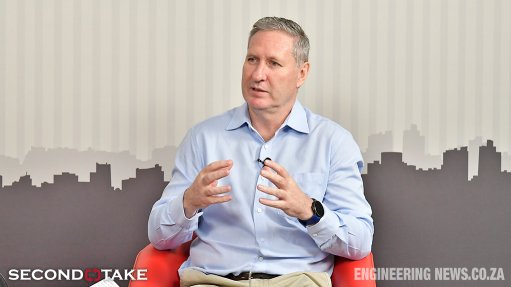AI-powered fintech solutions changing the way people in Africa transact
Artificial intelligence (AI) has the potential to propel the financial technology (fintech) industry into a new era of financial inclusion, and Africa is already developing innovative solutions that have considerable implications for the underbanked.
“Home-grown fintech companies have completely changed the way people in Africa transact, helping to reduce reliance on cash transactions. Innovative payment solutions have revolutionised access to essential services, such that millions of people can now afford everyday necessities like airtime,” says Microsoft Africa president Lillian Barnard.
As the barriers to AI adoption fall away, new tools are giving rise to substantive productivity gains and revolutionising industries such as fintech, she says, further highlighting how cloud technology has created a new realm of possibilities for fintech companies looking to accelerate financial inclusion, helping them scale their operations, create operational efficiencies and “spin up” new innovations overnight.
“Building on the progress enabled by the cloud, the world is undergoing a new wave of technological transformation, driven by AI. Suddenly, businesses do not need vast datasets or powerful computers to benefit from the technology, with most of the necessary compute power now available through cloud providers,” she said in an opinion piece.
Barnard points to the success of African payment giant Flutterwave, which shifted its legacy infrastructure to Microsoft Azure with a view to expanding its operations, offering multiple payment modes, including local and international cards, mobile wallets and bank transfers, and processing high-volume payments at scale.
“While AI is providing champions of financial inclusion like Flutterwave with the tools they need to expand their reach, it is also helping to fast-track access to financial services in a vast number of different ways.”
The adoption of digital financial services by local small and medium-sized enterprises has been hampered by cost, and it is estimated that about 90% of transactions in Africa are still cash based, often because cash transactions do not carry any fees.
However, the ability for AI to lower the cost of the entire ecosystem of financial services, including fraud detection, risk management optimisation and compliance improvements, can lead to substantial operational efficiencies and cost savings, which can ultimately be passed on to the end-user.
“Banks, for example, can make their services more affordable to their customers by rolling out AI-powered chatbots to handle routine queries, at the same time sparing them from having to travel to a bank branch,” she explains.
These bots can also produce personalised recommendations, such as budgeting strategies, to enable users to make a more informed financial decisions.
“AI tools can [also] analyse data from client discussions, producing legal documents in simple language and at a fraction of the cost of what it would typically take to draft a contract, extending access to these services in terms of both understanding and affordability.”
“Perhaps most important of all, many fintech companies have access to vast amounts of data, meaning that when AI is introduced to the equation, they have formidable ability to offer real-time digital lending on a major scale,” Barnard comments, citing as an example M-KOPA’s leveraging of Microsoft’s AI services to manage lending risk and provide financial forecasting.
M-KOPA provides digital financial services to underbanked consumers by combining digital micropayments and Internet of Things technology, drawing on cloud technology to process over 500 payments a minute and making it possible for three-million people across Africa to access essential services such as solar power systems, digital loans, health insurance and smartphones.
The company’s use of AI enabled it to increase customer repayment performance, particularly for the follow-on products and services that M-KOPA offers to customers once they have successfully repaid their initial loan.
Comments
Press Office
Announcements
What's On
Subscribe to improve your user experience...
Option 1 (equivalent of R125 a month):
Receive a weekly copy of Creamer Media's Engineering News & Mining Weekly magazine
(print copy for those in South Africa and e-magazine for those outside of South Africa)
Receive daily email newsletters
Access to full search results
Access archive of magazine back copies
Access to Projects in Progress
Access to ONE Research Report of your choice in PDF format
Option 2 (equivalent of R375 a month):
All benefits from Option 1
PLUS
Access to Creamer Media's Research Channel Africa for ALL Research Reports, in PDF format, on various industrial and mining sectors
including Electricity; Water; Energy Transition; Hydrogen; Roads, Rail and Ports; Coal; Gold; Platinum; Battery Metals; etc.
Already a subscriber?
Forgotten your password?
Receive weekly copy of Creamer Media's Engineering News & Mining Weekly magazine (print copy for those in South Africa and e-magazine for those outside of South Africa)
➕
Recieve daily email newsletters
➕
Access to full search results
➕
Access archive of magazine back copies
➕
Access to Projects in Progress
➕
Access to ONE Research Report of your choice in PDF format
RESEARCH CHANNEL AFRICA
R4500 (equivalent of R375 a month)
SUBSCRIBEAll benefits from Option 1
➕
Access to Creamer Media's Research Channel Africa for ALL Research Reports on various industrial and mining sectors, in PDF format, including on:
Electricity
➕
Water
➕
Energy Transition
➕
Hydrogen
➕
Roads, Rail and Ports
➕
Coal
➕
Gold
➕
Platinum
➕
Battery Metals
➕
etc.
Receive all benefits from Option 1 or Option 2 delivered to numerous people at your company
➕
Multiple User names and Passwords for simultaneous log-ins
➕
Intranet integration access to all in your organisation


















